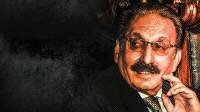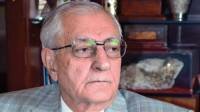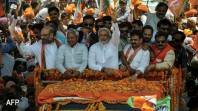ASAD JAMAL, Lahore based lawyer and columnist
How Chaudhry ran his courts?
I think all chief justices in Pakistan, including heads of provincial high courts, in recent past have run courts in a royal fashion. Part of the problem is the conventional role assigned to the chief justice (s) in the administration of courts. For example, chief justices have the sole power of constituting benches and assigning cases to benches rests with the chiefs. In the good old days, we are told, such power was used in consultation with other senior judges.
Elsewhere, we see that courts are increasingly moving toward adopting procedures to minimize the possibility of arbitrariness in the court and case management. Here, in Pakistan, we have seen no such advancement — the clamor about independent judiciary, notwithstanding. Such decision making has historically been abused by chief justices but Justice Chaudhry took it to new heights. There is no evidence to show that Chaudhry was interested in an independent judiciary. He may have been interested in “judicial independence” of a certain kind i.e., independence from all kinds of legal, conventional, constitutional constraints, totally autonomous from the parliament and the executive.
Impact on the balance of power
I think this is the most important question that will haunt independent observers, academics and lawyers alike for years to come.
I don’t think that Justice Chaudhry made any dent in the armed forces’ supreme status despite all the hullaballoo around the cases of disappeared persons. Let us admit that it is not the court which will ultimately change the balance of power scheme in the country. The out of court politics of this country will determine the future direction. But the fact is that at critical junctures the Chaudhry court sided with the military high command for instance, the so-called “memo” affair.
Justice Chaudhry kicked out an elected prime minister in a dubious manner when judicial restraint should have been exercised to strengthen democratic process. No such drastic step was ever even contemplated. It seems to me that Chaudhry may have actually contributed in retardation of the democratic process, which this country needed to run at a fast track since 2008.
It is too early to say what “enduring” changes Justice Chaudhry introduced to the system. But if you look at the biggest segment of the justice sector i.e. the lowest of courts, the magisterial level and the trial level, there is no positive change. There’s no effective accountability of lower judiciary. Superior courts seem to have become much more arbitrary compared with a decade ago, especially in constitutional/political matters.
My fear is that the sustained effort by the Supreme Court aimed at making the judiciary “independent” may have actually resulted in a paradigm which makes the institution totally “insulated” from effective external oversight and accountability of any kind whatsoever. So, for example, in an entirely perverse interpretation of relevant provisions of the constitution, the court has refused to be held accountable to the Parliament’s Public Accounts Committee (PAC). The judges’ accountability mechanism provided in the article 209 has already been rendered ineffective. Partly because the mechanism itself has become ineffective; because judges themselves are supposed to look into complaints of misconduct of judges but also because the chief justice Chaudhry in 2005 assigned to himself the power to proceed with any complaints received against judges of the superior courts. It is completely dependent on the whims of the chief justice of Pakistan.
Further, as a result of the jurisprudence developed especially since restoration in 2009, it is at present unthinkable for the Parliament to change the accountability mechanism of judges.
Strengths and weaknesses
It is argued by some of my lawyer friends that he has increased the accessibility of the Supreme Court to the ordinary people. Aggrieved people can write letters to the Supreme Court and get instant redress. The fact is that access of the Supreme Court was already increasing to the ordinary people during the 1990s which was slowed down by the advent of Musharraf. This accessibility under Art 184(3) of the Constitution of Pakistan was already increasing.
It was more than two decades ago that a telegram by Darshan Masih to the then chief justice was converted into petition under article 184(3) taking a huge step toward the court’s accessibility to the common man. The other important aspect people tend to ignore is that it is not the access to the SC that makes the difference but the ordinary civil and criminal courts at the lowest rung of the court hierarchy that matters. No visible dent in the poor working of the lower sub-ordinate courts has been made since the National Judicial Policy was announced in 2009. The fact is —and let us admits it— that Supreme Court alone cannot achieve the task of making justice accessible.
But then it was Justice Chaudhry who created this image with the support of the media that the Supreme Court, generally, and he, in particular, was doing an extra-ordinary job, which is simply untrue. One may argue that Justice Chaudhry by raising the issue of corruption time and again made it a national issue. But the fact is that general perception is that he did so with “political aims” in view. It seems to me that the biggest weakness of Justice Chaudhry was that he wanted to be seen as the messiah. He relied on the media in order for that image to perpetuate. He uttered things which made sensational headlines or tickers for the media. The media allowed him to maintain that image.
FASIH AHMED, Director, Associated Group, and Editor, Newsweek Pakistan
Iftikhar Chaudhry’s enduring legacy will be the judicial terrorism he unleashed on Pakistan. His judgments have ravaged established jurisprudence, skewed the political landscape against those he opposed, and forever demolished the sanctity of any contract signed with the Pakistani state. Chaudhry has made Pakistan suffer billions of dollars in lost economic activity, and exposed it to pauperizing international-arbitration claims.
Chaudhry, in a megalomaniac manner, likened himself to Islamic caliphs, viewed vendetta as a substitute for the law; this is what drove his verdicts. He paralyzed the previous government and then spluttered against it for its inaction. He successfully muzzled any criticism of him or his family through hectoring, bullying, and abuse of power. He puffed his chest out against the Army and then weaseled his way out from actually doing anything signal. He threatened contempt against those he viciously sullied when they dared to offer their side of the story. He thrived on the violent street power of junior lawyers, whom he viewed as his “army.” His bullying even caused public servants to suffer heart attacks. And, Chaudhry serially and cravenly let off terrorists, which is the reason that the Pakistani Taliban views him with such respect.
Chaudhry was always a flawed man; one who swore an oath of allegiance to the person of the Army chief in 2000 after validating the 1999 coup. He fanned political polarization to accrete more power and effectively ran a parallel government. His false, self-aggrandizing narrative that depicts him as some sort of Islamic crusader battling evil politicians, evil generals, and evil businessmen is rank fiction that was shattered after he swept his son’s galling corruption under the rug. In my opinion, there is nothing Chaudhry has ever done that can be claimed to have been done in the interest of Pakistan.
ATHAR MINALLAH, prominent lawyer and activist
“I think he brought about a change in the mindset of the people by giving them an inspiration through his act of standing up against a dictator and saying no, and motivating them for pursuing the rule of law and upholding the constitution. Before 9 March, 2007, it was something that was not a priority and this change is what will determine the future course of the country. “
SAROOP IJAZ, Lahore based lawyer and columnist
Iftikhar Chaudhry, particularly post restoration, changed in very fundamental ways the manner in which the chief justice dominates and runs the court. Historically and legally, the CJ has no real powers except for some administrative discretion, distinguishing him from other judges of the court. However, Iftikhar Chaudhry carried the leadership that was ascribed to him in the lawyers movement to the court, and for the first time in Pakistan’s history became a “boss” or leader of the court. Administrative discretion was used at times to give the impression of an inner cadre, with few judges hearing all important cases etc.
Weaknesses and Strengths
His major weakness was his visible quest for self advancement, to increase his sphere of power as much as possible, disregarding constitutional boundaries at times. Another weakness was having the perception of having public support and then feeling the need to pander to that constituency (including the media)
His one undeniable strength was being an extremely powerful personality which meant that he could, even for personal reasons, venture into domains that no previous court or chief justice had been able to. That at times was a breath of fresh air from the historically subservient and compliant judiciary that this country has always seen. Tragically, it was the primary strength of Justice Chaudhry which became also his most dangerous weakness.
Impact on Balance of Powers
Under Justice Chaudhry, the court for the first time became a real player in the power struggle. Historically the Court’s role was to be a final arbiter after the conflict was over —basically validating either the President dissolving the national assembly or military takeovers.
Under Chaudhry, the court fought and gained a lot of space, at least displacing the power of the Parliament and the Executive in some areas. Subsequent parliaments and executives will now for at least sometime have to ponder the question of how the court will react when contemplating an action. While this makes the Court as a more powerful player in the power game. Does this mean that the Court in particular and the Judiciary in general are better equipped now to discharge their primary function of dispensing justice and applying laws? I think not. Mainly, because the Court did not set sustainable jurisprudence principles (precedents).
The fights were conducted on the basis of Chaudhry versus XYZ and now without Chaudhry, the Supreme Court is worse off, namely because it has become controversial and hence moral authority and perception of neutrality compromised.
Interviews compiled by Salman Masood.
























